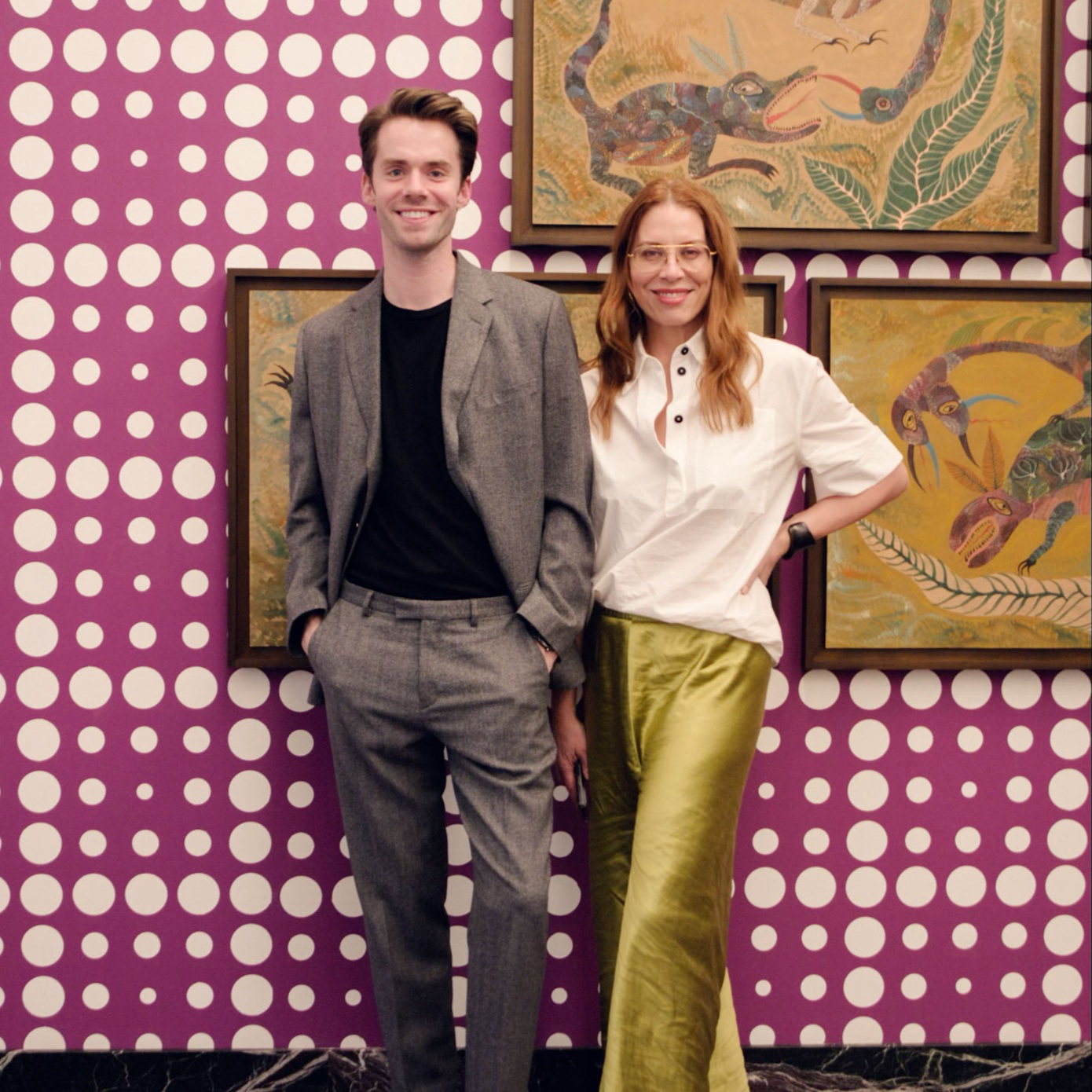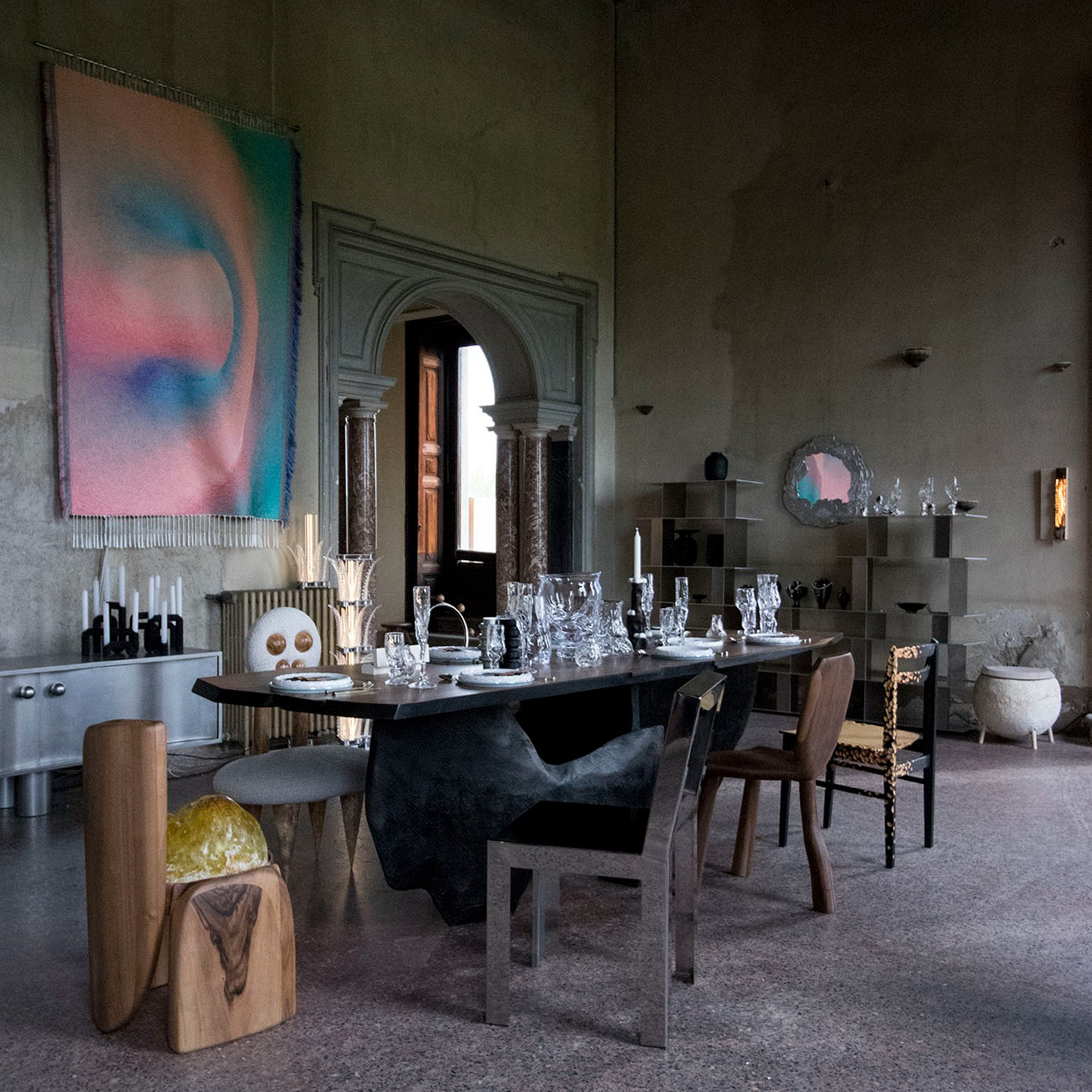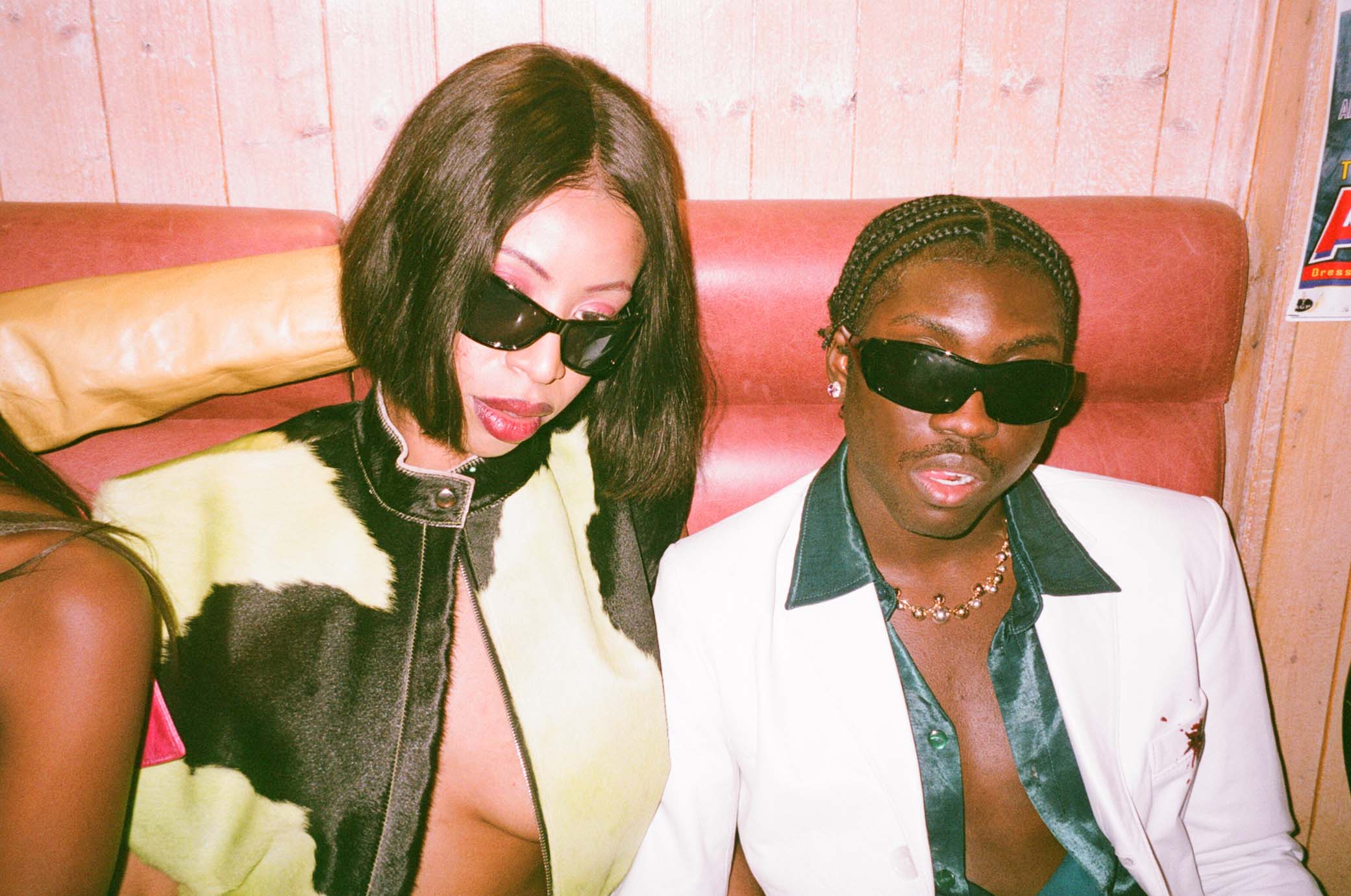
It’s hard to review an art show that has yet to be installed. But so vivid is the vision of Nigerian-British designer, Mowalola Ogunlesi, that when she speaks of her widely anticipated collaboration at London’s NOW Gallery set to open in December, it unfolds easily for me.
We’re on the phone—she in London, me in New York—and the soft-spoken but passionate 24-year-old is telling me her plans for how she hopes to transform the Greenwich Peninsula contemporary art space into her own, distinctive world. The vision is as attention-grabbing and enigmatic as the come-hither airbrush, skin-tight leathers and torso-exposing “thong” bodysuits that make up Ogunlesi’s gender-dismantling menswear collection. The designer has been titillating audiences ever since she sent thong-wearing Nigerian petrol heads traipsing down the runway at her Central Saint Martins BA show, “Psychedelic,” in 2017.
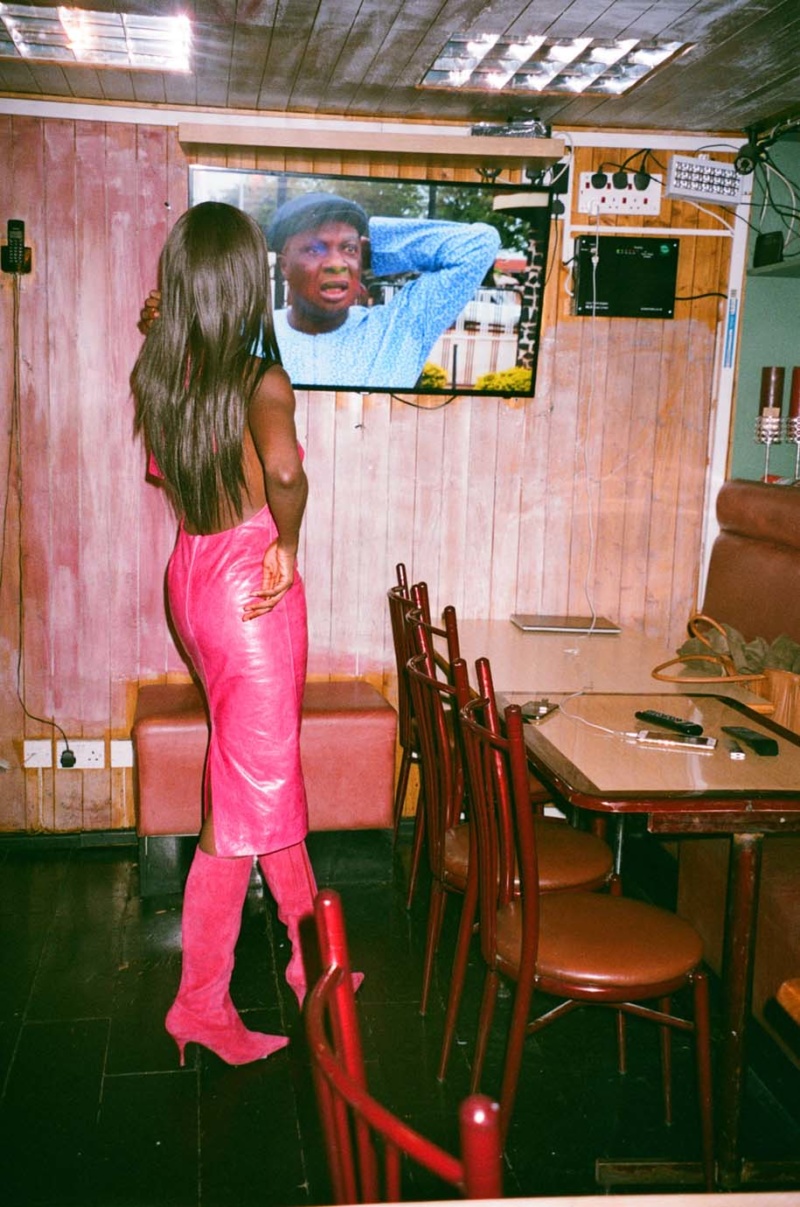
Picture it: guests arrive and are immediately lent MP3 players that hold six songs, all edited and produced as a collaboration between Odunsi (The Engine), Joey LaBeija, James Massiah and Ogunlesi herself, whose fastidious ear has driven the course of all three of her head- turning and electric collections. Headphones on, one’s ears fill with a soundtrack stacked and juxtaposed with grime, trap and electronic R&B tunes that feel so wrong that they have to be right, like Soulja Boy layered over a Whitney Houston ballad. Already on a sonic trip, guests are swept into a darkened room, draped in a kaleidoscopic patterned backdrop of Ogunlesi’s design. Peppered throughout the space are objets décoratif—musical instruments, pieces of cloth, found objects, all items that evoke nostalgia for Ogunlesi and serve as artifacts of her own rich personal history. The eye will eventually land upon a would-be band of black mannequins, all dipped in tar for added effect. Zipped up into custom print-smattered Mowalola bodysuits, these figures match perfectly with the patterns encasing the walls, creating a “fabric collage” throughout the space. The mannequins clutch tar-dipped instruments. Even a motorcycle will get dunked in the inky molten matter. “Well”— Ogunlesi pauses—“that’s still up for discussion.”
The amalgamation of references, textures, sounds and frequencies is a composite of all of Ogunlesi’s interests, ultimately congealing to amass a modern and decidedly more inclusive “Renaissance painting,” as the creative describes it. “It’s a visual experience, but I just started thinking about what’s most important to me and what I’m truly inspired by, like films, music and people,” she explains. “I wanted to find a way to incorporate all of those into the installation and I wanted to celebrate each part of that, so I was thinking of creating a Renaissance painting of today—of what my Renaissance painting would be like in 2019. Then it just developed into becoming more like the world I imagined, the world I design for.” I can’t help but think of a statuesque Kehinde Wiley portrait when she says this, as Ogunlesi, like Wiley, centers black bodies and aesthetics in the most illusionistic of ways.'
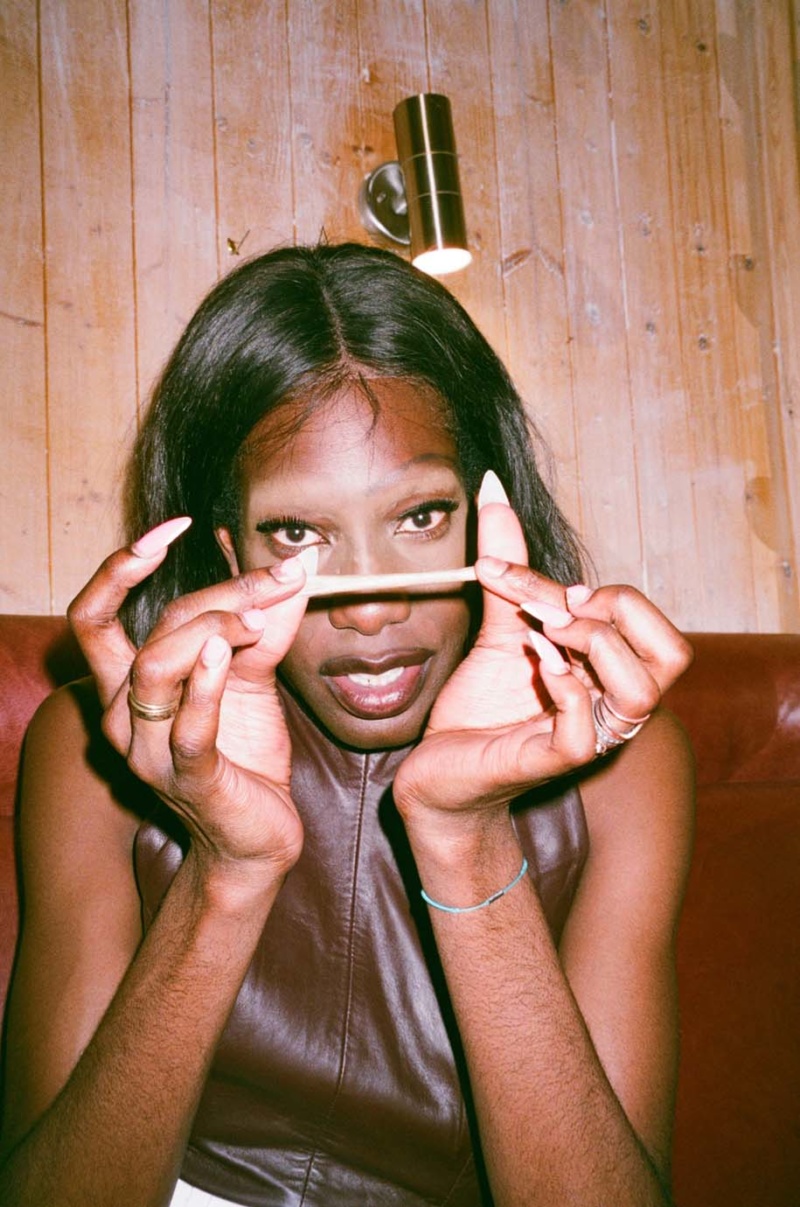
Still, what of this art? “Silent Madness” could feel for anyone who has followed Ogunlesi’s meteoric ascent in the last two years— from a Central Saint Martins co-ed to the rising star emerging out of the Fashion East collective, whose “blood”-stained, bullet-holed gown recently worn by Naomi Campbell on the Fashion For Relief red carpet caused an international uproar around gun violence—like a departure from her work on the runway. But she tells me that, in fact, the gallery was always where she envisioned her work landing. When NOW Gallery reached out last spring and asked her to pitch this project for their fashion collaborator program, Ogunlesi leapt at the opportunity. With just a week turnaround, she developed “Silent Madness” and found herself winning out over five other designers for the coveted opportunity. “I don’t see a big difference [between my collection and “Silent Madness”] because I’m always thinking with an art mind, even since I was in secondary school. Fine art is what I studied first. I didn’t study fashion. I was just really creating—I didn’t even want to study fashion,” she reveals. “I was just like, ‘I’m going to do what I like and see what happens.’ And it turned out that I do like fashion as a medium, because I can show people this world that I’m thinking of, not only with clothes, but through film, music, photography and just everything.”
Her art education—both formal and informal—serves as the groundwork for her career; she matriculated to London’s famed Central Saint Martins with the intention of studying textiles before landing upon fashion textiles. However, the culling of her artistic sensibility really began as a child in her home of Lagos, where the Nigerian native first learned at the feet of her parents, both of whom are clothing designers. Ogunlesi attests that they taught her to think freely and to formulate a considered sense of taste and style that was all her own. “Whenever we’d go out and go shopping, I’d be asking my mom, ‘What do you think? What do you think?’” she recalls with a laugh. “She’d always tell me, ‘What do you think?’ and that would really piss me off because I would be like, ‘I’m asking you a question! Give me your opinion!’ But then I realized she was just trying to get me to figure out what I liked as a person in general, so I wouldn’t be looking at other people to see what I need to look like or what I need to do or say or wear.”
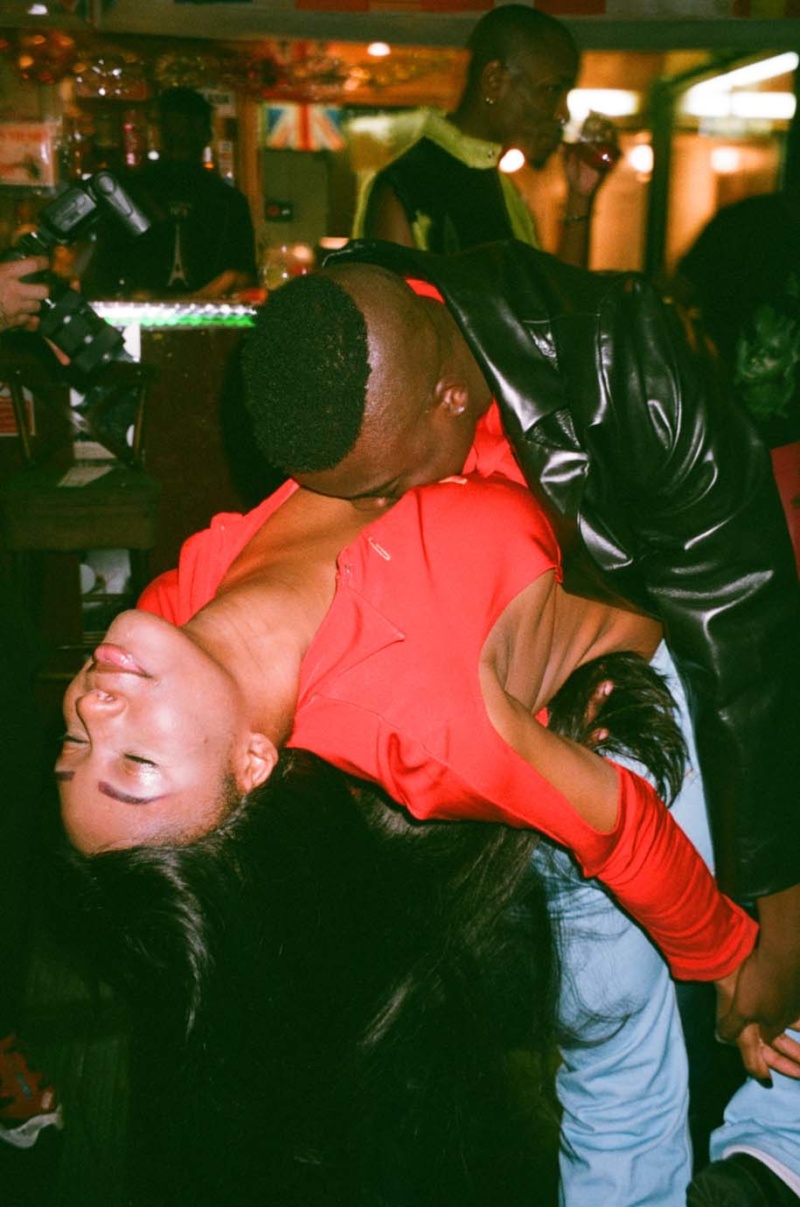
Such self-awareness turned Ogunlesi into a bit of a “monster” as she grew older, the creative jokes. She rebelled against local conventions, deigning to wear whatever she felt like despite her parents’ growing objections. But it also helped her glean a definitive vision—one that is readily apparent in the lookbook for “Psychedelic,” which was styled by Ib Kamara and photographed by Ruth Ossai, both friends and frequent collaborators. With Nigerian men actively dismantling gender binaries in hislung leather pants and nipple-baring motocross jackets splashed with hypnotic prints, Ogunlesi wanted to address the conservative sexual mores of her home country head-on, and, more specifically, how black sexuality is seen and discussed writ large. “I go back to Lagos all the time and when I do, there are so many more stylists who are doing things where guys are being seen as way softer,” she applauds. “Masculinity has transcended what the old generation declared it was, and [now] there are musicians who wear crop tops and they’re straight... it really makes me happy that this is happening and changing and people aren’t so afraid to be themselves.”
But rather than using didacticism to change the minds of Lagosians, she employed fashion to send her message. Moreover, she built a creative community of friends and collaborators that pushed her to experiment and dig her feet in on her stances. “I want to work with people who challenge me and I realized that those are my friends, so I’m really, really lucky,” she says. “We just have a great synergy of understanding. Because we grew up together, we watch the same things—we all have our little worlds, but all of us together are unstoppable.” Running with a tight-knit and impressive cabal of creatives that includes the likes of Kamara, Ossai, Nigerian rapper Odunsi (The Engine), model Adesuwa Aighewi and hairstylist Virginie P Moreira, to name a few, has prompted Ogunlesi to develop a zine/yearbook that catalogs their work and that of other outstanding local creatives. She hopes it will become a vital resource for the up-and-comers behind her, signaling to them that, “if you’re interested in something, this is someone who is doing it right now, so you can look at what they do and find out how you can do that and implement that in your life and wind up doing what you [want to] do.” Representation matters, as Ogunlesi knows all too well: growing up, she explains that the only black designers she saw highlighted by the fashion industry were Puff Daddy for Sean John and Kimora Lee Simmons of Baby Phat. It wasn’t until she saw Grace Wales Bonner’s show while in university that she witnessed a runway made up entirely of black models.
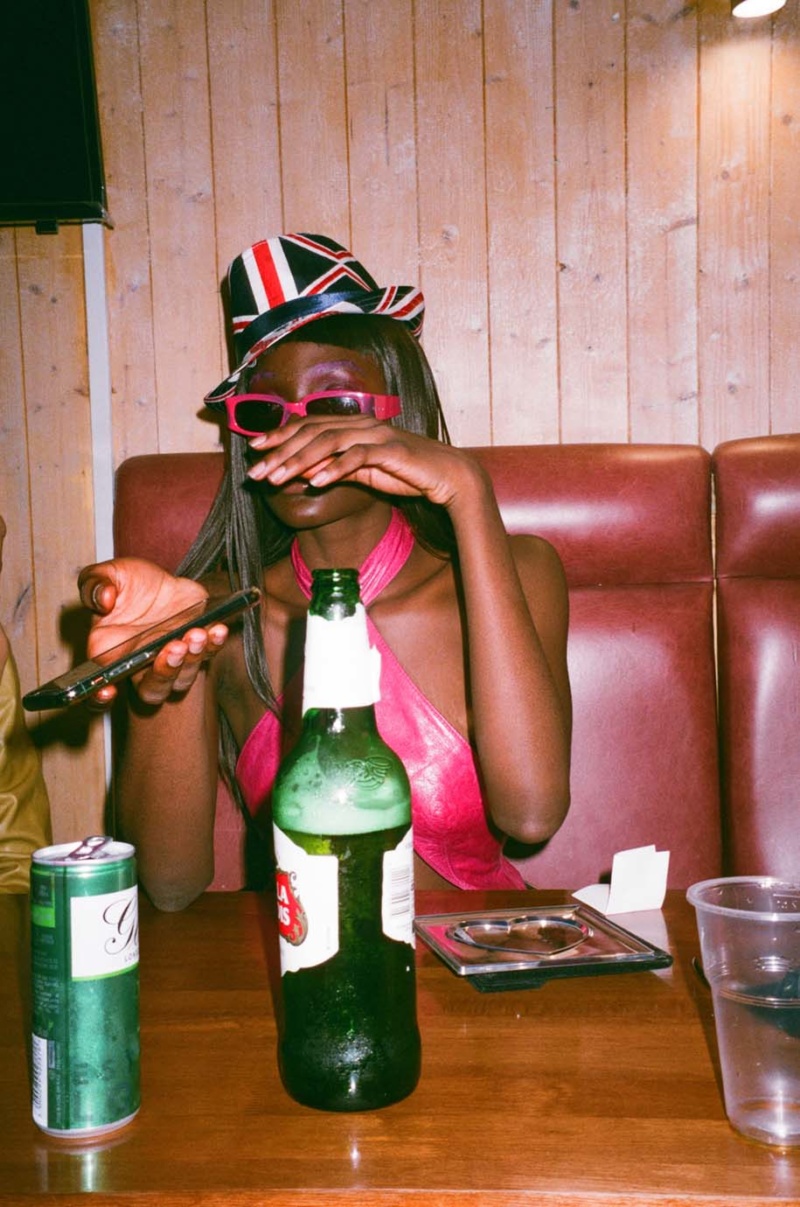
But perhaps one of Ogunlesi’s biggest artistic thrusts is music. It’s the main catalyst behind all of her collections, with psychedelic rock fueling her first and the aggression of Nine Inch Nails underscoring her most recent offering for Fashion East’s menswear collections in June. “The energy I get from listening to certain songs kind of takes over and transcends what I’m thinking about and allows me to really be free. And I feel like that’s when I create the best,” she explains. She admits she’s no singer but was a percussionist for years in boarding school; a drum kit now lies untouched in her Dalston apartment. Instead, the designer, who is a fixture on the London club scene, is a musical connoisseur, fixated on curating sounds and a mixtape by 2020, à la DJ Khaled. “I feel like there are young artists who are overlooked because they’re not very mainstream, but I care more about the music than the image you’re trying to sell people. I think they know themselves more and they’re less fearful of creating.”
But more than just creating a vibe, music offers Ogunlesi another perspective on how to approach fashion. Not interested in sticking to a two- collection-a-year timetable, the designer wants to create a substantive body of work that will last, like a game-changing album. “To me, I really want fashion to be enjoyed how music is. You can release an album and people will listen to it for four years. Why can’t I have a collection and you enjoy that for the next four years, and [meanwhile] I can do other things instead?” she opines. It’s a sustainable model for sure: one that doesn’t weigh on resources (“I don’t want to just kill the environment”) or on her emotional bandwidth, which the demands of fashion often drains. “It makes sense why brands just fizzle out after a couple of seasons: you’re putting so much of yourself into this thing, and at the end of the day you need time to experience shit to be able to have those feelings and know what you want to say. If you’re constantly doing the same things, you’re not going to grow as a person.”
Days after our chat, with her words ringing in my ear, I see footage of Ogunlesi pop up on her Instagram fan account, @peoplewearingmowalola. Perhaps on a break from producing “Silent Madness,” she’s at a smoky London party, manning and owning the 1s and 2s. Poured into a hot pink minidress with a plunging neckline from her own collection, she’s turning the crowd up with a sonic collage of jumpy Afrobeats that seamlessly loops into Young Thug and Gunna’s rattling banger, “Hot.” With her newly shorn bob swinging to and fro, she’s undoubtedly lost in a state of euphoria, a world of her own making.


